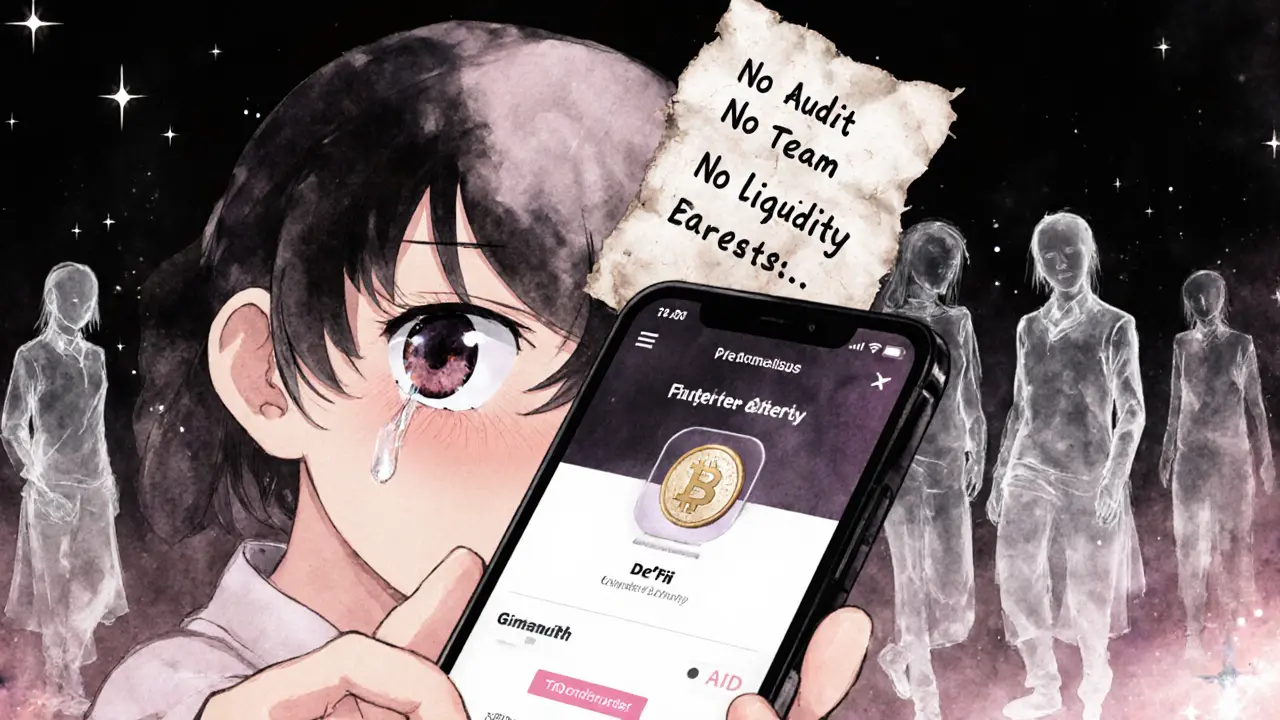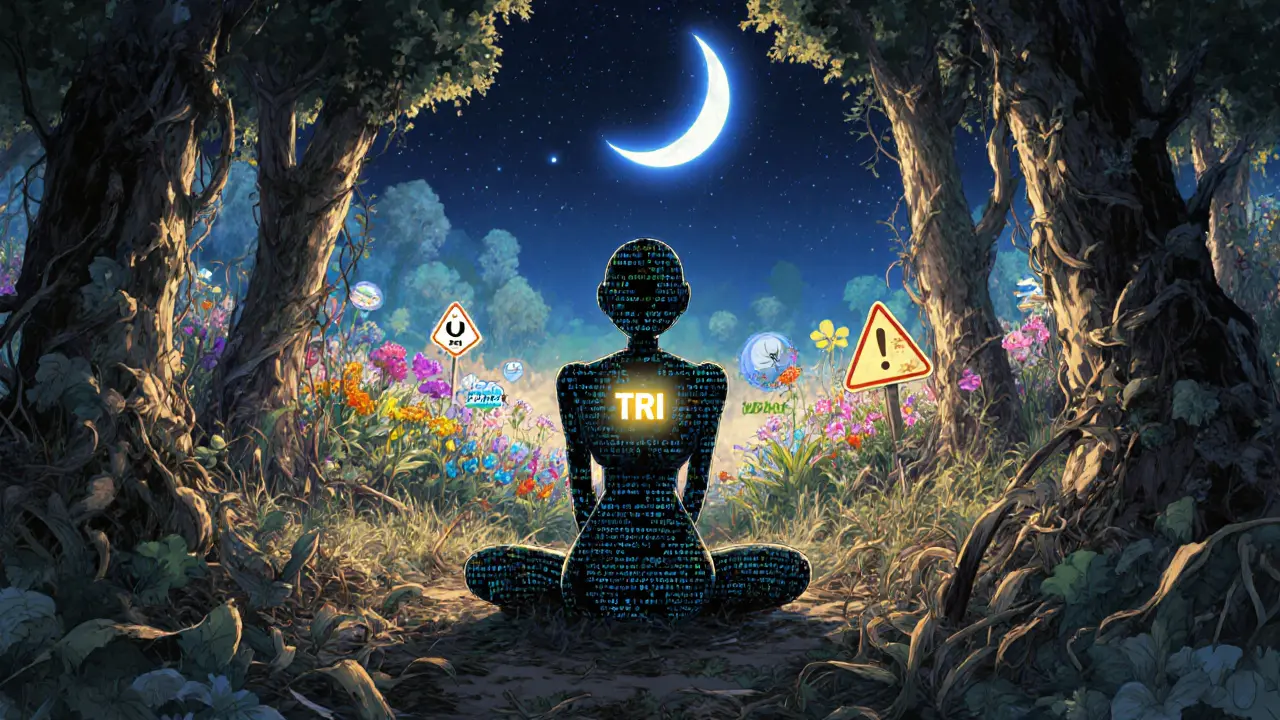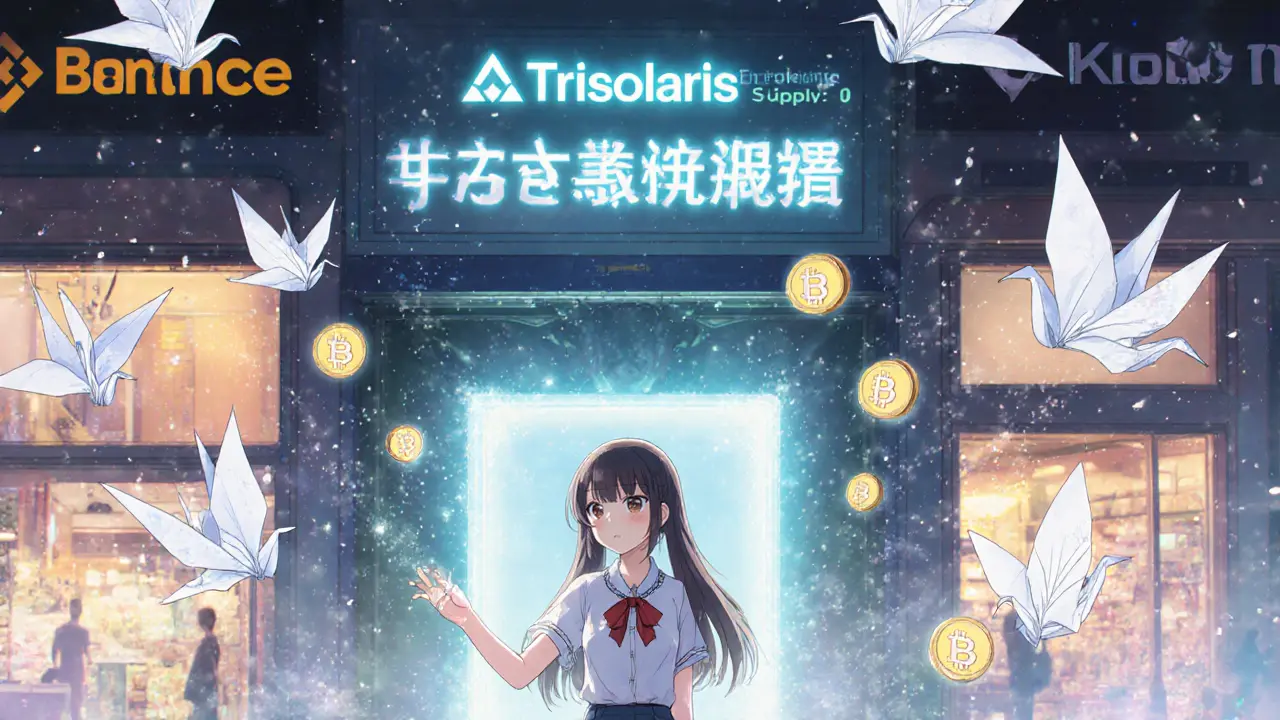DeFi Token Verification Tool
Verify Token Legitimacy
Enter a token symbol to check if it's legitimately listed on exchanges and has valid market metrics.
People keep asking if Trisolaris is a crypto exchange. It’s not. And that confusion is costing traders time, money, and trust. You type "Trisolaris crypto exchange" into Google, click the first result, and expect to buy Bitcoin or trade altcoins like on Binance or KuCoin. Instead, you land on a token page with a $0 market cap and zero circulating supply. That’s not a glitch. That’s a red flag.
Trisolaris isn’t an exchange - it’s a DeFi protocol
Trisolaris (TRI) is a decentralized finance protocol, not a platform where you deposit funds and trade. Think of it like this: Coinbase is a store. Trisolaris is a recipe for a new kind of kitchen appliance. The recipe promises faster cooking, lower energy use, and built-in safety features. But you can’t buy the appliance yet - you’re just reading the instructions.
The TRI token is designed to power this protocol. Its goals are simple: reduce gas fees, speed up transactions, and stop rug pulls. Rug pulls are when developers vanish with investors’ money - a nightmare in DeFi. Trisolaris claims its smart contracts include built-in protections to prevent that. But claims without proof are just noise.
The numbers don’t add up
Here’s what the data says: total supply of TRI is 181,742,469.62 tokens. Maximum supply? The same. Circulating supply? Zero. Market cap? $0.00. Fully diluted market cap? Around $112,345.80. That doesn’t mean the token is worthless - it means it’s not trading anywhere meaningful.
If you can’t buy it on major exchanges, and no one’s holding it, how is it supposed to work? A DeFi protocol needs users, liquidity, and active trading to function. Without those, it’s just code sitting on a blockchain. No one’s staking it. No one’s swapping it. No one’s earning rewards from it. That’s not innovation - that’s a ghost project.
Where can you actually buy TRI?
Some sources say KuCoin lists TRI. But if you go to KuCoin right now and search for "TRI," you won’t find it. Or if you do, it’s likely a scam token with the same name. There are thousands of fake tokens on DEXs that copy real project names to trick people. Always check the contract address. If you don’t know how to do that, you shouldn’t be buying it.
Even if you find a legitimate TRI token on a DEX like Uniswap or PancakeSwap, you’re dealing with zero liquidity. That means if you buy 100 TRI, you won’t be able to sell them later. The price will crash to zero the moment you try. That’s not speculation - that’s a guaranteed loss.

Why does this confusion exist?
Some websites and YouTube videos mislabel Trisolaris as an exchange because they’re copying outdated or fake content. Others use clickbait titles like "Trisolaris Exchange Now Live!" to drive traffic. They don’t care if you lose money. They just want ad clicks.
Even worse, some DeFi projects intentionally create this confusion. They want you to think they’re a big exchange so you’ll trust them more. But real exchanges have licenses, customer support, KYC, and trading pairs. Trisolaris has none of that. It’s a token with a website and a whitepaper. That’s it.
What should you do instead?
If you’re looking for a DeFi protocol with real traction, try Aave, Uniswap, or Curve. They’ve been audited. They have millions in liquidity. Their tokens trade on multiple exchanges. You can check their TVL (Total Value Locked) on DeFiLlama. You can read their audit reports. You can see who’s building on them.
Trisolaris doesn’t have any of that. No audit reports. No team bios. No roadmap. No GitHub activity. No community forums with real users. If a project can’t show you those things, it’s not worth your time.

Storage and security: even if you get TRI, what then?
Let’s say you somehow get TRI tokens. Where do you store them? On an exchange? That’s risky. If the exchange gets hacked, you lose everything. On a wallet? Fine - but only if you know how to use one. Hardware wallets like Ledger or Trezor are safest. Software wallets like MetaMask work too - but you’re responsible for your keys.
Remember: "Not your keys, not your coins." If you don’t control the private key, you don’t own the token. And if the token has no value, why risk it?
Is Trisolaris a scam?
It’s not confirmed as a scam. But it’s also not confirmed as real. It’s in a gray zone - the most dangerous kind. Scams are obvious. They vanish overnight. This? It’s still here, quietly, with zero activity. That’s worse. It’s a zombie project. It’s not dead, but it’s not alive either. And that’s exactly what predators want - a project that looks real enough to lure you in, but too quiet to raise alarms.
There’s no evidence of development. No team updates. No partnerships. No press. No social media engagement beyond a few bots. If this were a legitimate project with real potential, you’d see something. Anything. Even a tweet from the founder saying "we’re delaying the launch" would be better than silence.
Bottom line: avoid Trisolaris (TRI)
Trisolaris isn’t a crypto exchange. It’s a token with no market, no liquidity, and no proof of life. Searching for it as an exchange is like looking for a restaurant that doesn’t exist - you’ll end up hungry and confused.
If you want to trade crypto, use a regulated exchange like Kraken, Binance, or KuCoin. If you want to use DeFi, stick to protocols with real usage, audits, and community trust. Don’t gamble on ghosts.
There’s plenty of opportunity in crypto without chasing shadows. Focus on what’s real. What’s active. What’s transparent. Trisolaris is none of those things.

